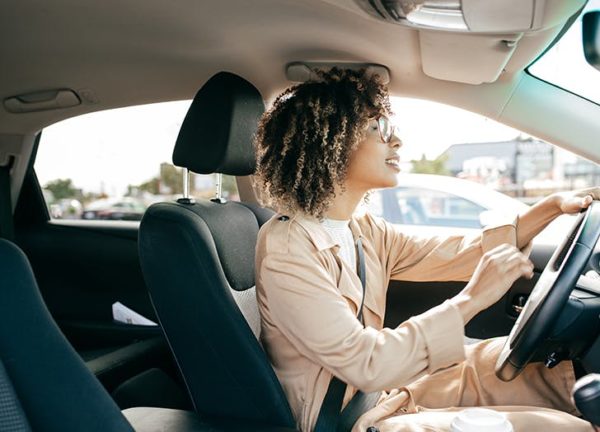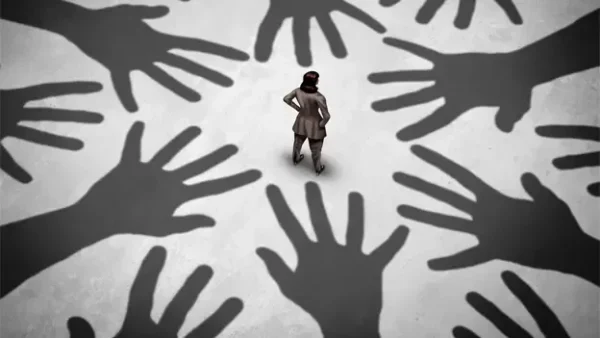
How Can We Make Taxis Safer for Women

Taking a taxi is one of the most convenient ways to get around, and thanks to the growth of ridesharing apps, it can sometimes be the most cost-effective too. Sadly, there is a dark side to the industry, which most women are all too aware of, leaving many feeling very scared or apprehensive about taking a taxi alone, and for good reason. Almost 300 sexual offence allegations were made against taxi and private hire drivers in London in 2018 alone — an 81% rise on the previous year.
These shocking statistics prove that there’s still a long way to go before all women feel like they can use taxis safely, without fear of harassment and assault. But what can be done to put them at ease and make the experience safer?
Increase the number of female taxi drivers

Fear of assault means that plenty of female customers would probably feel more comfortable with a female taxi driver. This demand is being filled by companies like Annisa Cars, which only hires women. “We are not trying to single out men nor do we believe that they are men guilty (sic), but we have to address the issue,” founder Sade Agboola explained to the BBC. “As a mum-of-one I use a lot of minicabs myself and there were a lot of situations in which I felt uncomfortable and nervous, especially when I was alone with the driver.”
Although Agboola believes her service is “a way to empower women”, there has been some controversy surrounding some women-only taxi companies. For example, a proposal to start one in Glasgow was deemed sexist against men, as the only male passengers allowed were children up to the age of 11. Nevertheless, having more women in the driving seat can only be a good thing, especially when a staggering 98% of UK taxi drivers are men.
Nowadays, many of the perceived barriers to this career path have been removed. For example, working for a rideshare app often offers a flexible schedule, which is convenient for women who have family commitments. What’s more, women don’t even need to own their own cars to become taxi drivers, and it’s possible to hire a PCO car (one approved by the Public Carriage Office) for relatively little, and doing so could even help cement business. As rental company Hirebrid notes, an attractive, regulated vehicle helps drivers “present a completely professional image to [their] passengers at all times”.
Introduce compulsory CCTV
It’s important to remember that, as with so many female passengers, women may feel endangered driving for the same reasons. Therefore, making sure taxis are as safe as possible is paramount. Services like Uber have introduced protective features, such as the ability to share trip data with family and friends, and an emergency button that calls for police assistance. And while the company has faced immense scrutiny, statistically women believe rideshare apps are still safer than private hire taxis and public transport. As journalist Harriet Hall has noted: “If a black cab driver wants to attack someone, is a rider genuinely safer? Without GPS tracking, it doesn’t feel safer.”
One thing that could certainly improve safety in taxis is CCTV. While some vehicles already have cameras installed, it isn’t yet mandatory. However, the benefits could be significant — not only would a camera identify perpetrators of harassment and assault, but its presence may also act as a deterrent. As one female taxi driver told Kettle magazine, “I’ve had some abusive and rude guys in my taxi, sexually explicit remarks are not uncommon. Luckily I can just point to my camera now.” Promisingly, taxis and minicab drivers may be legally required to install CCTV in the future, as the government aims to tighten licensing laws.
Utilise new technologies

It’s possible that safety measures could go even further, and Via Technologies has suggested that cloud-based recorders would be even more effective than CCTV cameras. “While consumer devices are great for capturing individual incidents, they are less useful for transport companies and for fleet owners that need longer-term evidence gathered from multiple journeys,” they explained. “A small device will simply record over video footage once it runs out of storage space, but a cloud-connected recorder with 4G/5G connectivity can be a real game-changer.” Therefore, all videos could be saved without sacrificing older footage.
They added that companies could also allow passengers to stream the video and audio of their journey to family and friends. If contact was lost, the police would be notified of the taxi’s last GPS location. While there may be some privacy concerns, “this could allow for a swift intervention in what could otherwise become a serious incident.” Embracing innovative technology like this could really help put women’s minds at ease when using taxi services. Also, if an accident happens when you are in the taxi, you can just call a rideshare accident lawyer. They will help you work things out and secure compensation for your losses.












































